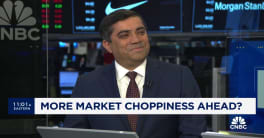The Federal Reserve announced Tuesday that it would hold the Fed funds target rate at 2.00%, as was widely expected. The accompanying statement was balanced between a concern for slowing growth and elevated inflation levels.
In the growth paragraph, the FOMC said "economic activity expanded in the second quarter, partly reflecting growth in consumer spending and exports." They said labour markets softened further and that "financial markets remain under considerable stress".
"Tight credit conditions, the ongoing housing contraction, and elevated energy prices are likely to weigh on economic growth over the next few quarters. Over time, the substantial easing of monetary policy, combined with ongoing measures to foster market liquidity, should help to promote moderate economic growth," the statement read.
On inflation, the statement said energy and commodities prices have pushed inflation to "high" levels, which should moderate this year and the next, "but the inflation outlook remains highly uncertain."
On the monetary outlook, the FOMC statement said downside risks to growth remain, upside risks to inflation are of significant concern, and the committee will continue to monitor economic and financial developments and act as needed to "promote sustainable economic growth and price stability."
The only dissenting voice in the FOMC decision was Dallas Fed president Richard Fisher, who preferred an increase in the target rate. This is the second consecutive meeting at which Fisher has called for a rate hike.
The Fed also left the discount rate unchanged at 2.25%.
Voting for the FOMC monetary policy action were: Ben S. Bernanke, Chairman; Timothy F. Geithner, Vice Chairman; Elizabeth A. Duke; Donald L. Kohn; Randall S. Kroszner; Frederic S. Mishkin; Sandra Pianalto; Charles I. Plosser; Gary H. Stern; and Kevin M. Warsh
The hold in rates was widely anticipated by markets.
By Patrick McGee and edited by Stephen Huebl







